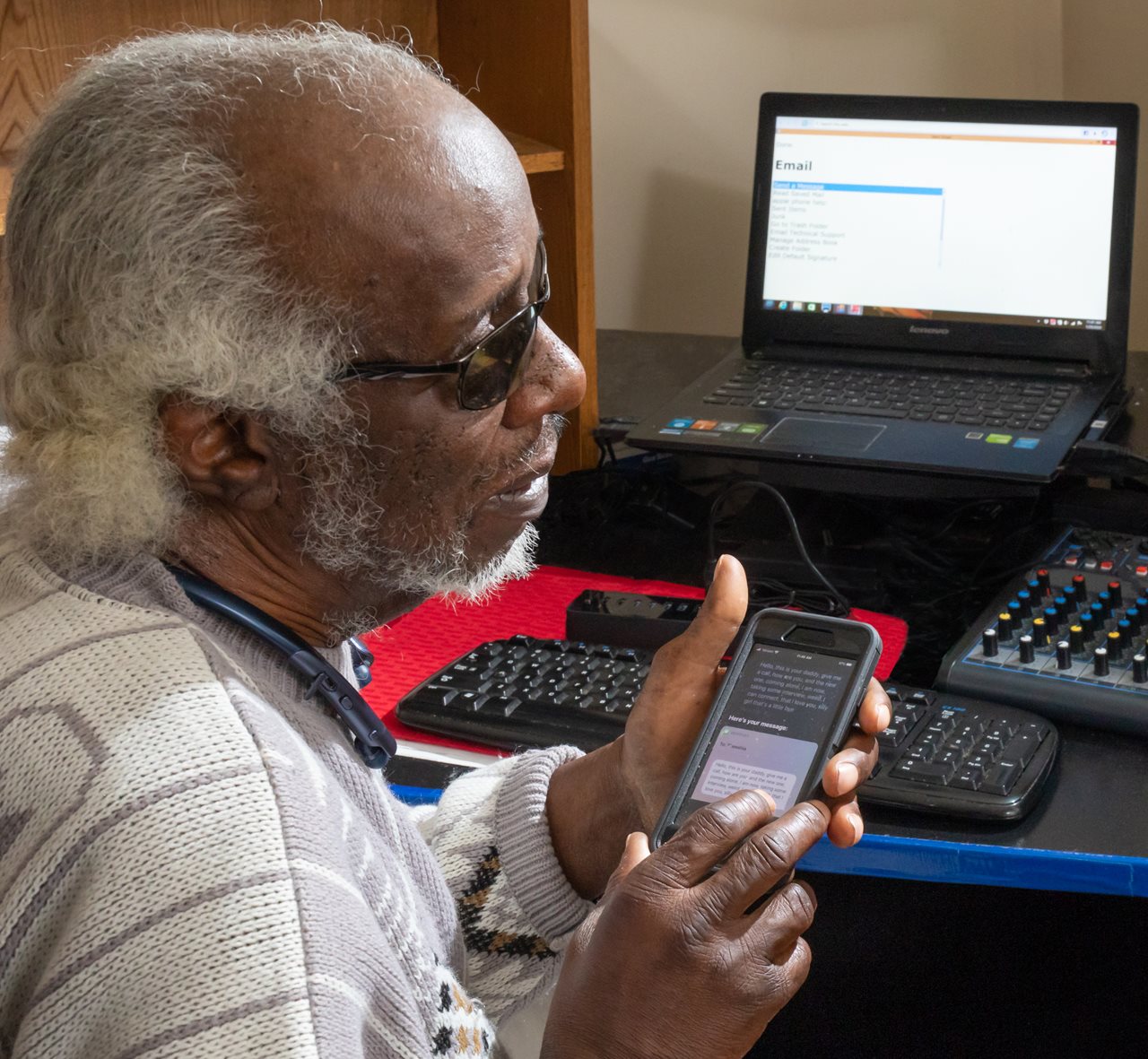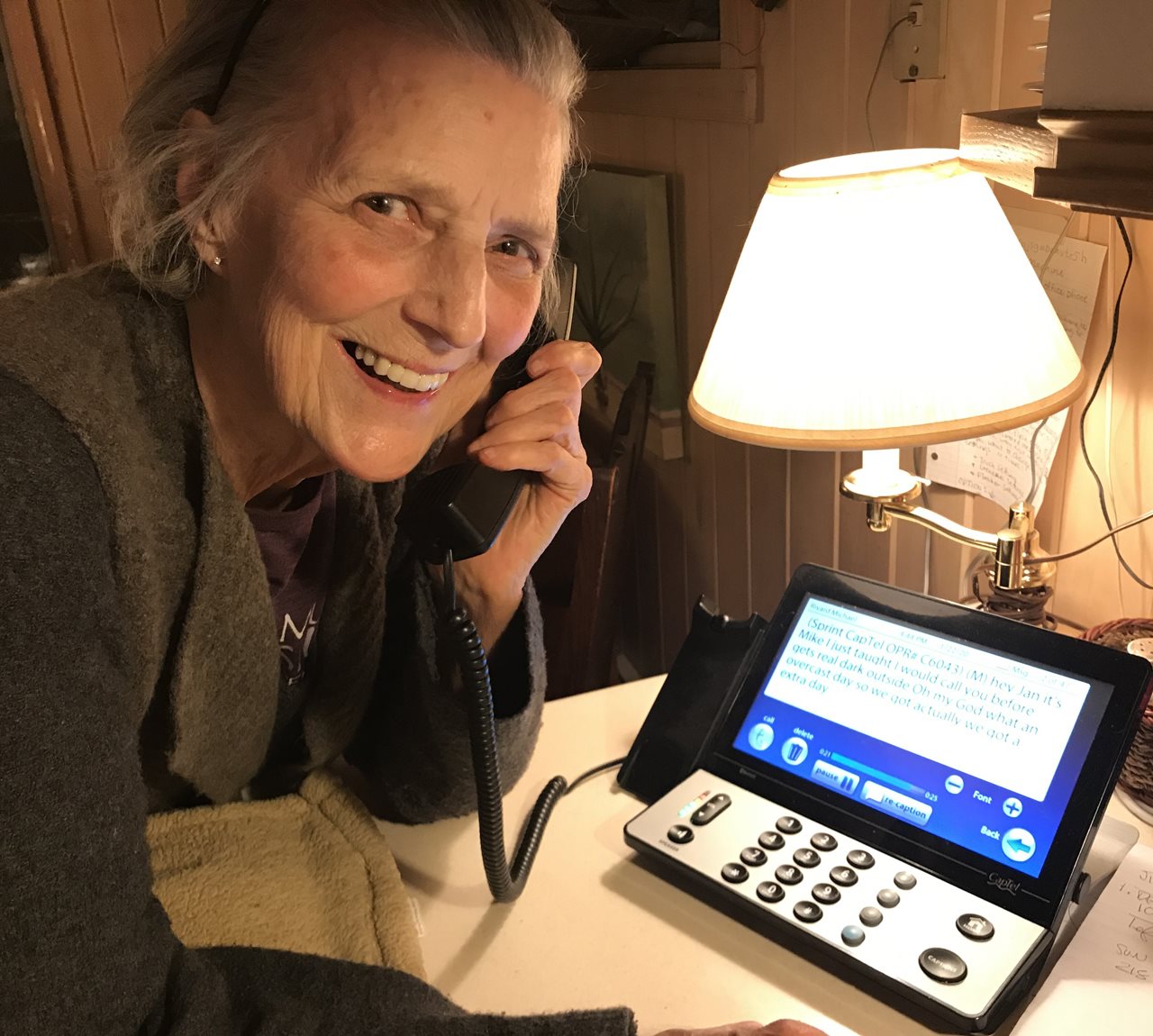(BPT) - The ability to communicate and connect with other human beings is central to life. For those who are deafblind, even simple communication can be a major hurdle, especially from a distance. People living with both significant hearing and vision loss — due to conditions including Usher Syndrome, CHARGE Syndrome, aging and many other factors — face isolation that may seem impossible to overcome.
Fortunately, today's technology offers solutions to help people with vision and hearing impairment communicate and feel connected to friends, family and the world at large. Technology opens up possibilities for the deafblind — but people first need the equipment and training to be able to access these opportunities. This is where the iCanConnect program comes in.
A free program that reduces isolation

The iCanConnect program, also known as the National Deaf-Blind Equipment Distribution Program, is run by the Federal Communications Commission (FCC) to provide free distance communication equipment and training to individuals with significant combined hearing and vision loss, and who meet federal eligibility requirements for income and disability.
"Since its inception, iCanConnect has provided nearly 9,500 individuals with free equipment and training," said Jackie Ellington, FCC administrator for iCanConnect. "If you or a loved one are eligible for this amazing program, don't miss the opportunity to participate. If you're unsure if you meet the criteria, go to iCanConnect.org, find your state contact, and reach out."
Ernest Gallman, a South Carolina resident in his 70s, met his grandbaby virtually, thanks to the equipment and training through iCanConnect. Gallman began losing his eyesight at age 10, then experienced progressive hearing loss over the years, leaving him feeling isolated. After being assessed by his local iCanConnect representative, Gallman received a smartphone, wireless headset and desktop computer. Using this equipment, he was able to meet his new grandson virtually via video chat with his daughter soon after the birth.
"The equipment and training I received through iCanConnect really changed my life. It made me more independent and more connected to my family," said Gallman. "I hope anyone struggling with independence and isolation won't be afraid to reach out and get information about the program."
The beauty of communication

Jan Attridge, an artist in her 80s from northern Minnesota, began losing her hearing and vision a few years ago resulting from chemotherapy. This made it increasingly difficult to keep in touch with friends and family, including her son Mark.
"I was having trouble hearing on my landline phone, and I was having difficulty understanding messages left on my answering system," she said. "I was also having more difficulty just understanding what was said during a conversation."
Attridge was referred to iCanConnect through the Minnesota Department of Human Services. An iCanConnect representative visited her and conducted an assessment of her distance communication needs and goals. Once she was accepted into the program, Attridge received a Clarity desk phone, CapTel phone and an iPhone. An iCanConnect trainer met with her to teach her how to use the new equipment.
Now, Attridge can keep in touch with her son Mark, plus other family and friends with the equipment she received through the program. "iCanConnect has been a godsend," she said.
For more stories of participants being helped by the program, visit iCanConnect.org/news.
How to find connection
After a person qualifies for the program, a local iCanConnect representative meets with them to determine their distance communication needs and goals. The participant then receives free equipment that best meets their needs, plus free training on how to use it. This equipment helps participants do things like send and receive emails and text messages, make phone calls, participate in social media and manage life activities and services that are increasingly conducted online. The equipment iCanConnect provides includes smartphones and home phones, laptop and desktop computers, braille devices, signalers, screen reading software like JAWS and more.
Since it began, iCanConnect has been helping participants across the U.S. and its territories increase their independence and keep in touch with family, friends and communities. Whether reconnecting with old school friends, playing music and games with family over video chat or participating in telehealth and virtual therapy appointments, iCanConnect helps meet each participant's goals to stay connected.
To learn more and to apply, visit iCanConnect.org.